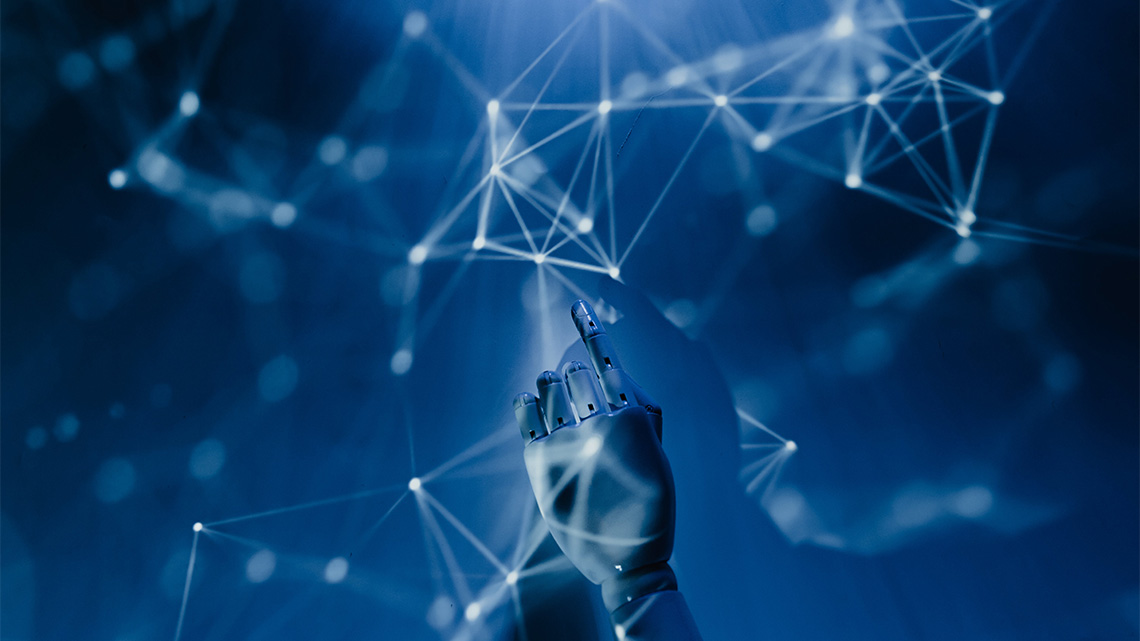Peace Sunday 2024 is Sunday 14 January and the theme chosen by Pope Francis is ‘Artificial Intelligence and Peace’. Pax Christi have produced a series of resources to mark the day.

For his theme for the World Day of Peace in 2024, Pope Francis has chosen ‘Artificial Intelligence and Peace’. Whilst this might seem a strangely technical theme, we do need to think about the consequences of the advances in AI for peace and justice.
Read: Pope Francis’s message on Artificial Intelligence and Peace.
Certainly, governments around the world are taking the development of AI seriously. In November, UK Prime Minister Rishi Sunak invited experts and world leaders to a summit, expressly to look at AI and safety. Prior to the summit, he affirmed that, whilst we should not be alarmist, and that there are undoubtedly benefits for humanity in the development of AI, “get this wrong,” he said, “and AI could make it easier to build chemical or biological weapons.” Further he said, in the most extreme case, there is even a risk that humanity might lose control of AI completely, experts warning earlier in the year that, “Mitigating the risk of extinction from AI should be a global priority alongside other societal-scale risks such as pandemics and nuclear war.”
In that light, Pope Francis is raising a highly contemporary theme and one he has spoken on before when he has addressed the risks in the development of technology, not least in Laudato Si’ and Laudate Deum. He has already said it is a theme he will return to on World Communications Day 2024, when he will consider ‘Artificial Intelligence and wisdom of the heart for a fully human communication’.
For many of us, the first question is: ‘what exactly is ‘Artificial Intelligence?’ It is a concept that has entered our everyday language and yet we are not quite sure what it encompasses. Inevitably, there are a number of definitions but that used by the UK Information Commissioner is helpful:
“AI is an umbrella term for a range of technologies and approaches that often attempt to mimic human thought to solve complex tasks. Things that humans have traditionally done by thinking and reasoning are increasingly being done by, or with the help of, AI.”
We are already familiar with a number of its uses – internet search engines like Google, the ability of applications like Amazon, YouTube and Netflix to recommend something to buy, watch or listen to, based on our previous choices, software like ChatGPT which can generate articles and essays, or design software that can generate images.
What are our concerns as peacemakers in the development of AI? First there is the direct impact of AI on war and weapons. Drone Wars UK warn that AI is seen by the world’s military powers as a way to revolutionise warfare and gain an advantage over enemies. Worrying military applications of AI are already being rolled out and those in development pose threats to our lives, human rights and wellbeing.
Then there are the fundamental concerns that Pope Francis raised when he announced his theme for the World Day of Peace: the need to be vigilant that a “logic of violence and discrimination” doesn’t take root in the development of AI at the expense of the most fragile and excluded; that the advancement of AI does not fuel injustice and inequality and therefore conflict, and, of course, that AI is developed so that it serves humanity and the protection of our common home. It is a theme we will need to keep returning to.
God our creator and sustainer,
We thank you for the gifts of creativity you have given us, for the ability to explore science and understand your creation.
We ask your forgiveness for the times we have used science for evil and not for good, for war and not for peace.
Make us vigilant as we develop technology, that violence and discrimination may not take root, that injustice and inequality will not be fueled, that the poot and vulnerable will not pay the cost.
May all that we create contribute to peace and justice.
Amen